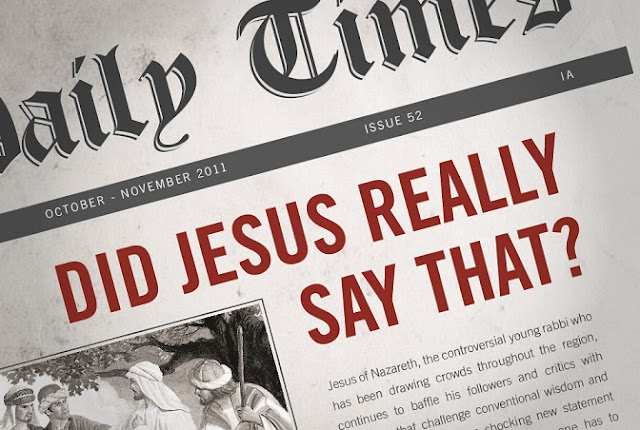“After six days Jesus
took Peter, James and John with him and led them up a high mountain, where they
were all alone. There he was transfigured before them. His clothes became
dazzling white, whiter than anyone in the world could bleach them. And there appeared
before them Elijah and Moses, who were talking to Jesus”
(Mark 9:2-4, NIV).
“If we could just stay up here at camp site, it would be so easy to be a
Christian. The beautiful surroundings, inspiring speakers, good Christian
friends, good food and none of the hassles of living at home and campus. Jesus
is so real here. Why can’t Christian life always be like camp experience?”
In other word, why can’t Christian living be a ‘mountaintop experience’? If
you’ve attended Christian camps as often as I have, response like wishful
paragraph above is a very familiar one. After a week of fun, where praise and
worship, quiet time and Christian friendships come so easily, who wants to go
back home to the tests, trials and temptations of real life? It’s so much easier
to live on the mountaintop.
So it seems like Peter,
James and John got a taste of the Christian camp, only in a much more graphic
way than you and I. As Jesus’ three closest disciples looked on in trembling
amazement, Jesus’ appearance was drastically changed. Jesus “was transfigured before them. His clothes became dazzling white,
whiter than anyone in the world could bleach them.” It was a touch
of heaven, just like our typical Christian camps experience, only less. Then
two Old Testament “stars” – Elijah and Moses – mysteriously appeared and began
talking with Jesus as the three disciples stared and “were so frightened” (9:6). The Jews believed that both
Elijah (representing the prophets) and Moses (representing the law) were
noteworthy among their ancestors because of their great departure from earth
(see 2 Kings 2:11 and Deuteronomy 34:5-6). With this knowledge, I think,
perhaps Peter, James and John expected God to bring them from the mountaintop
into heaven. What a way to go!
Peter, a man who was never
at a loss for something to say, stepped forward to suggest that they “put up three shelters” (9:5) or build three shrines to
commemorate the glorious event. He wanted the event to last as much as we want
our camp to last forever! But Peter was interrupted by “a cloud [that] appeared and covered” the heavenly trio.
Then “a voice came from the cloud”
boldly announced: “This is my Son, whom
I love. Listen to him!” (9:7). Then Elijah, Moses and the cloud
disappeared leaving Jesus and his three disciples standing alone on the
mountain. Sadly, the mountaintop experience ended.
Friends, isn’t that the
way it is at camp? Great music, inspiring speakers, prayerful atmosphere –
Christianity couldn’t be easier! On the way to camp we sing songs until our
lungs out. Then on the last day we give a glowing testimony of our fresh
commitment to Christ. Everything is rosy and bright – heavenly! But then, here
is Monday morning. The thrill is gone! Camp is over! Life with all its
disgusting realities and complexities is back. No! But that’s the way it is
after a spiritual high like camp. It’s happened to me and almost every students
I’ve ever known. We come back to the nasty here-and-now.
But wait a second! Take a
look back up on the mountain in Mark 9:9. “As they were coming
down the mountain, Jesus…” There are four of them who went back to
the valley from the mountaintop experience. Peter, James, John – and Jesus! It’s
not Jesus in shining cloth, accompanied by Elijah and Moses, and surround by
cloud of heaven. No, it’s Jesus in
everyday clothes, walking closely to His disciples as He accompanies them back
to the nasty here-and-now. I think that’s what we tend to forget when
coming back from camp, church, prayer meeting or any other mountaintop
experience. Jesus is not confined to a mountaintop chapel, sanctuary or campsite.
Jesus journeys with us into everyday life to help us with difficulties,
temptations and trails.
No doubt, it is a great journey
to a mountaintop and get a glimpse of a gloriously glowing Jesus. These
occasional experiences with Christ help charge our spiritual batteries (Thus, I
promote Christian camps). But everyday life is in the valleys and on the land,
not on the mountaintop. And that’s where Jesus is today – right here in the
valleys with us, helping us to live out the mountaintop glow. Life after camp
is where we spend most of our time. Friends, do you see Him in the ordinary?
“As they were coming
down the mountain, Jesus…”
I love Jesus. He is surely with us on the mountaintop,
and definitely – in everyday life.
THINK BIG.
START SMALL. GO DEEP.





















